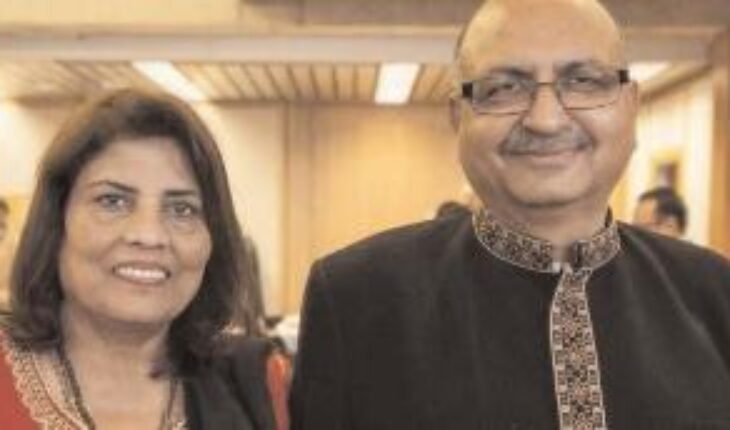CHICAGO: Sanskrit is the longest continuously taught South Asian language at Chicago University since 1892
The University of Chicago has established a professorship in Sanskrit studies from $3.5-million donated by an Indian-American couple to help the varsity advance its study of the Indian subcontinent.
Guru and Anupama Ramakrishnan gifted the university the amount to establish the Anupama and Guru Ramakrishnan Professorship in Sanskrit studies which supports a faculty member whose work focuses on the ancient classical language, a university statement said. Renowned for its excellence “The University of Chicago is world renowned for its excellence in the scholarship of South Asia,” said Humanities dean Martha T. Roth. “Guru and Anupama Ramakrishnan’s generosity allows us to sustain that tradition and makes possible continued rigorous study of the cultural heritage of South Asia through its literary, religious and philosophical texts,” Ms. Roth said. Gary Tubb, professor in South Asian Languages and Civilisations and faculty director of the University of Chicago Centre in Delhi, will be the first scholar to hold the new position, the statement has said. Delighted to fund this chair “We are delighted to fund this chair in Sanskrit — one of the oldest languages that has given the world the Vedas, Upanishads and other exceptional works of spirituality, poetry, music and dance,” the Ramakrishnans said. “The University of Chicago’s long-term commitment to scholarship in Sanskrit made it our institution of choice to partner with on this important initiative,” the couple, which also supports a scholarship programme for Indian students at Chicago Booth, added. Drive to raise $4.5 billion Their gift is part of the university’s campaign ‘Inquiry and Impact’ which will raise $4.5 billion and engage 1,25,000 alumni by 2019. The campaign has raised $2.82 billion and engaged more than 59,000 alumni to date. Sanskrit, the oldest literary language of South Asia, is the longest continuously taught South Asian language at Chicago University, having been offered since the first classes were held at the university in 1892. Extraordinary broad range of texts and histories “Sanskrit really stands out among the world’s languages — alongside other classical languages — as being a single language that provides access to an extraordinarily broad range of texts and histories,” Mr. Tubb said. He said he was attracted to the language because it provided “access to a long and rich history of human thought.”–PTI






